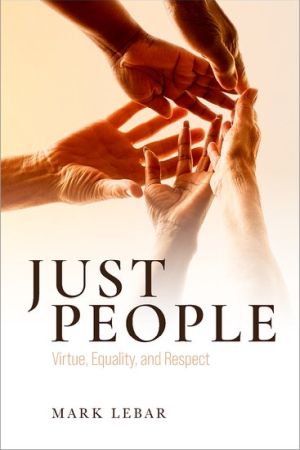
We often think of justice as a virtue that belong to states, societies, and institutions. It has not always been that way. Justice began as something between individual people, and only recently has its application to larger groups become predominant. In Just People, Mark LeBar makes a case for recovering the original priority of justice in and between individual people, as a virtue of character.
The model for this virtue comes from Aristotle, whose own notion of the virtue of justice has notable shortcomings. Just People argues that we should understand justice in people as a matter of recognition of and respect for equal authority to obligate one another. That is, we should see one another as having equal capacity to obligate others through our persons and choices. This is a form of equality that is usually overlooked in discussions of equality, but here it is the cornerstone of justice, vindicating Aristotle's thought that justice is itself a matter of a kind of equality.
LeBar rethinks a number of popular assumptions, including that we can make sense of justice in societies or institutions without thinking of the implications for our aspirations to be just people -- a thought that is long overdue. His book is a reformulation of justice, with the potential to fundamentally change the way we treat one another.